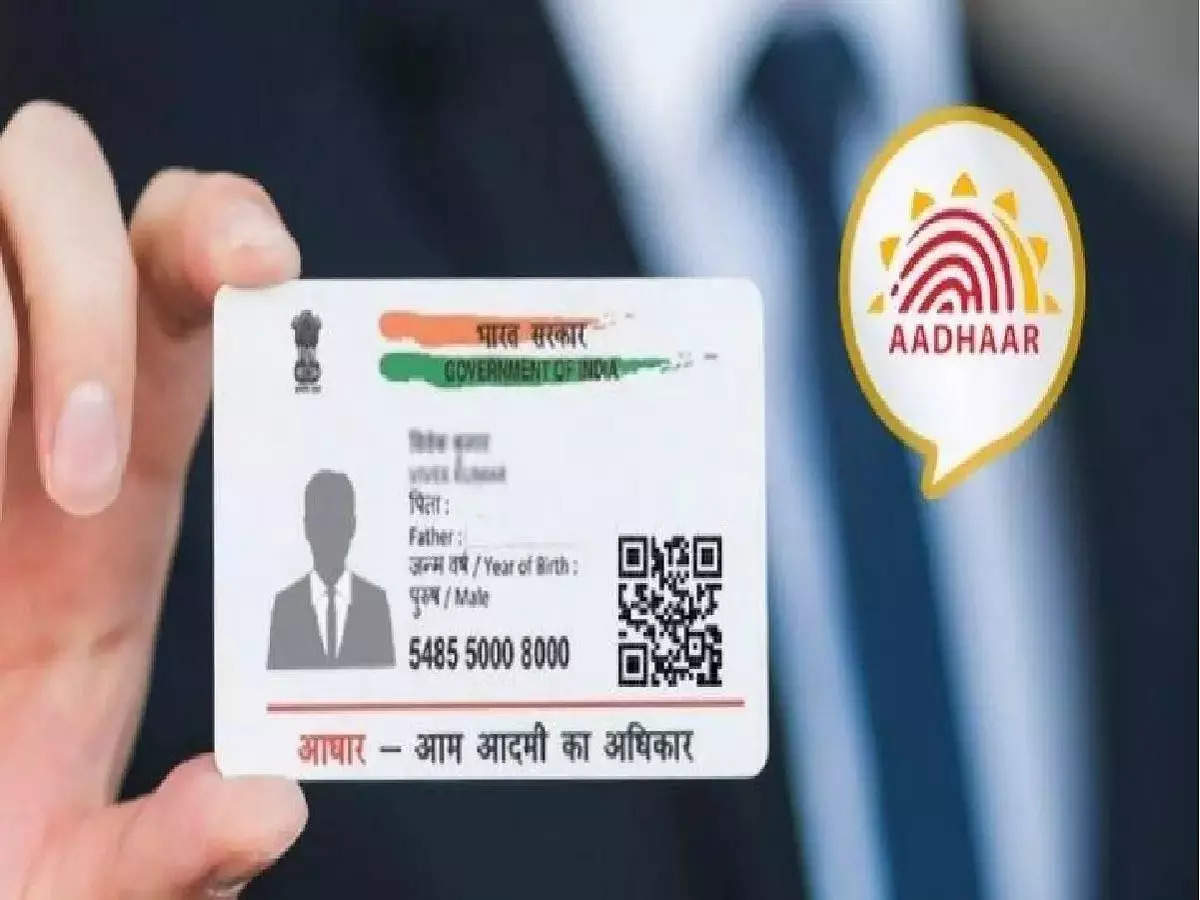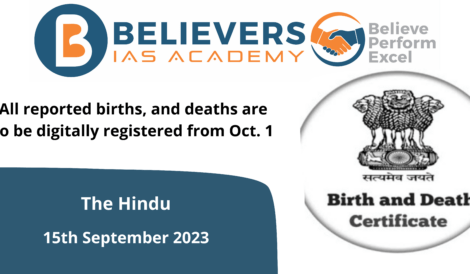Registration of birth, death by Aadhaar authentication allowed
Context :
The Office of the Registrar-General of India (RGI) is now able to authenticate Aadhaar cards as part of the nation’s birth and death registration process thanks to permission from the Centre. Nevertheless, it is not required.
What is Aadhaar?
Definition and Purpose:
- Aadhaar is a 12-digit unique identification number issued to residents of India and certain foreign nationals.
- It is obtained voluntarily and is based on biometric and demographic data.
- The Unique Identification Authority of India (UIDAI) is responsible for collecting and managing the data.
Legal Framework:
- The Aadhaar (Targeted Delivery of Financial and other Subsidies, benefits and services) Act, 2016, provides the legislative backing to Aadhaar.
- Prior to this act, the UIDAI operated as an attached office of the Planning Commission (now NITI Aayog).
Scope and Limitations:
- Aadhaar is considered proof of residence, not proof of citizenship.
- It does not grant any rights to domicile in India.
- It is not a valid identification document for travel to Nepal and Bhutan.
Supreme Court Rulings:
- The Supreme Court of India has issued several rulings on Aadhaar.
- In September 2013, the court stated that Aadhaar is voluntary, and no person should suffer for not having it.
- The court has affirmed the voluntary nature of Aadhaar in subsequent rulings and addressed privacy concerns.
Right to Privacy:
- In August 2017, the Supreme Court declared the right to privacy as a fundamental right, impacting the Aadhaar system.
- A constitutional bench of the Supreme Court heard cases related to Aadhaar, considering privacy, surveillance, and exclusion from welfare benefits.
What is the recent change made in the Aadhar ?

- Introducing Voluntary Basis: Aadhaar authentication is optional while registering births and deaths. It is done voluntarily, allowing people the option to choose Aadhaar authentication or not.
- Purpose of Authentication:The aim of the Aadhaar authentication is to confirm the identification of the people taking part in the registration procedure. It authenticates the parent, informant, and child’s identities during births. It confirms the identity of the parent, spouse, and informant in cases of deaths.
- Yes or No Authentication:The Registrar, who oversees the registration procedure, can undertake Aadhaar authentication in one of two ways: yes or no. This means that, without disclosing any further personal information, the authentication will check if the supplied Aadhaar number is real or not.
- Guidelines for State Governments and Union Territories: With regard to the usage of Aadhaar authentication, State governments and Union Territories must follow the rules established by the Ministry of Electronics and Information Technology (MEiTY). These rules guarantee that Aadhaar authentication is applied consistently and uniformly across different locations.
- Previous Regulations and Notifications: In 2020, the government issued regulations declaring that seeking entities could accept Aadhaar authentication. This was done to encourage ease of living, promote good administration, and stop the leakage of public monies. A proposal justifying the usage of Aadhaar authentication must be prepared by the competent Ministry or States and submitted to the Centre for further referral to the Unique Identification Authority of India (UIDAI).




